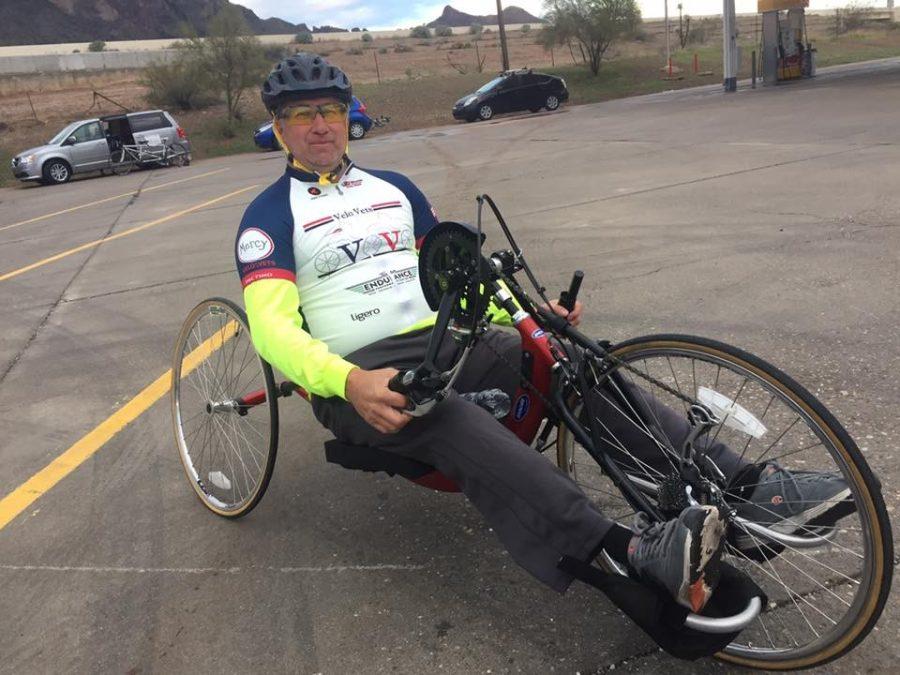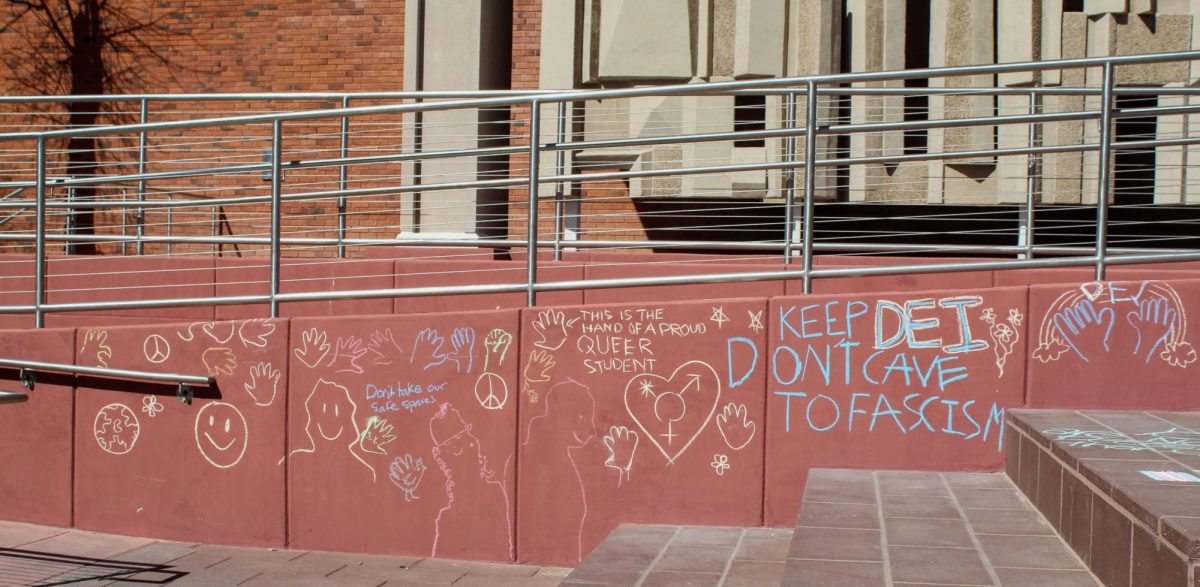Veterans from the Tucson community are improving their lives through VeloVets, a non-profit, all-inclusive cycling organization.
It started over four years ago when director and former UA professor Giuliana Donnelly asked her friends for help on an idea she had. Now on Tuesdays at 5:30 p.m. veterans, their families and people from the community can be found enjoying bike rides at Tucson Veterans Affairs Campus.
Donnelly found detailed studies about ”forced exercise” and its benefits to the mind and body, something that would help veterans in their lives. One benefit, Donnelly said, is that with tandem bike rides, the rider specifically on the back cannot choose how fast they go, leading to more brain activity.
“They decided that 90 rpms is the ideal speed and people on the back of the tandem who are forced to pedal at this rate, which they probably would not otherwise, experience a great relief from symptoms.” To go the 90 rpms the rider must be at attention. “If we can find something that can have them reduce their symptoms without taking a bunch of drugs, which increases their overall health, why not do that?” This will ultimately reduce the load that is put on their families, Donnelly said.
This data led Donnelly to the VA Southwestern Blind Rehabilitation Center to discuss what she wanted to do regarding getting able and disabled veterans alike to participate with the organization.
James Arnold, recreational specialist with the VA Southwestern Blind Rehabilitation Center, said that because Donnelly always seeks to do more, the group has grown in the three years he’s been involved. “The program at that time was nothing like it is right now,” Arnold said. “When she took over the program, she started building websites, she’s finding more donors and getting more bikes and it’s really growing now.”
“We serve all disabled veterans, differently abled; whatever it is, it doesn’t matter,” Donnelly said. “It could be missing a limb, bad back, PTSD, depression, addiction, blind, you name it, recovering from a stroke … we just get every one of these guys or girls on bicycles.”
RELATED: Heroes programs combats veteran PTSD
VeloVets operates solely on donations and has acquired adaptive bikes that can be tailored to all of the vets that desire to ride. Donnelly said there hasn’t been one person who’s appeared that they haven’t been able to get on a bike.
“I’m very interested in the ability for veterans to transition after active duty; I see a lot of veterans for one reason or another stay in that world and never really connect to the civilian world,” Donnelly said. “So I’m doing everything I can to help that transition be easier. It can be very difficult to transition, and so the idea of having some help at your university or a social activity you can bring your family to, anything to help.”
Some of the veterans with disabilities that participate haven’t experienced a bike ride in a long time.
RELATED: eterans find solace in Israel experience through Heroes to Heroes Foundation
“A lot of these guys and girls, for whatever their reasons, especially some of the older vets that come to us, … have not moved through the air faster than 1 mile an hour in 30 years,” Donnelly said. “All of a sudden, they’re on a bike and they’re whipping along and they’re sweating and they’re laughing and they’re talking and they come back a whole different person.”
Kitty Griffin said that for two months the organization worked with her son Matthew Murren to get him adapted to riding; it has now been two years. “They have gone above and beyond to make him comfortable, to make him part of the family, socially, emotionally, physically, in every aspect.” Now Murren, who at first couldn’t support his frame when riding, is getting ready to participate in a tandem bike race.
Donnelly said they want more vets involved, especially students. “I really want student vets to come out and ride with us. I want them to think that they will get a good workout, that any level of ability or not is welcome and supported,” she said. “I want them to know that their significant others and family members are welcome—all ages including dogs. I want them to know that internships are possible with us in all sorts of areas for credit.”
“This is so many facets for me,” she said. “From website design, to fundraising, to bike maintenance, it keeps me busy, and every single person that works with us has some kind of skill.”
The goal for VeloVets is to meet the vets and their supporting family and help them move forward.
“We’re here, and my motto is we meet the veteran where he or she is and we help them get to where they want to go and we’re here every week,” Donnelly said.









